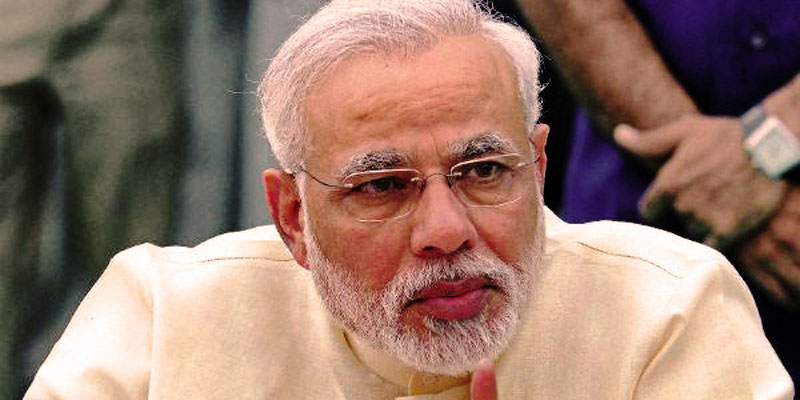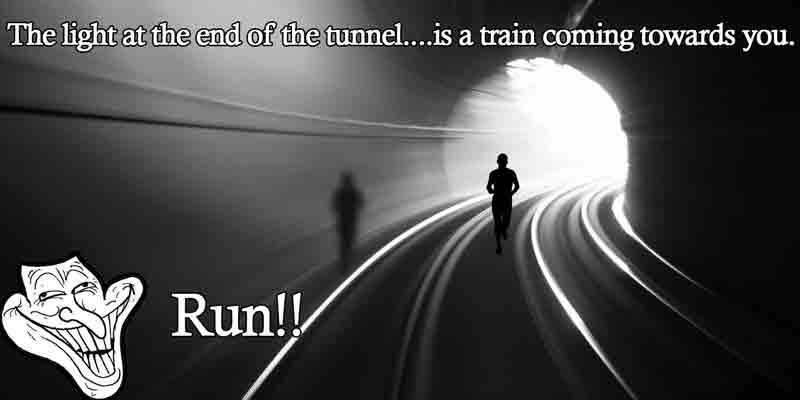Modi was able to punch hole in the theories of his opponents while they were talking about him being a ‘œmass murderer’ (Mulayam) and raking up the issue of Ram Mandir (Kejriwal) which BJP has kept aside for the bigger agenda of development.
It was a great Sunday. Bihar chief minister Nitish Kumar was sitting on a dharna against central government’s indifference regarding his state, former CM of Uttar Pradesh Mulayam Singh Yadav was holding an election rally at Allahabad, former Delhi CM Arvind Kejriwal was addressing people at Kanpur and BJP prime ministerial candidate Gujarat chief minister Narendra Modi was trying to punch hole in the governance of UP in Lucknow.
Ofcourse, there was India-Pakistan cricket match but it became clear at the end of the day that it was a lost battle.
At a time when speculations are rife of Modi contesting from n UP constituency in general elections forecasted to be held in April, almost 10 lakh people went to hear Modi in Lucknow. Here are 10 takeaways from his speech:
- According to Modi, the Third Front “experiment” will prove “costly” for the country which needed a government that could take decisions and come up to the people’s expectations.
- He launched a veiled attack on AAP routing it through third front and said that all the parties which emerged and got established on the basis of anti-Congress politics were forced to join hands with Congress due to political opportunism at one time or the other.
- Promising to root out corruption by adopting a “zero tolerance” policy towards it, Modi made scathing remark against country’s top political leadership, saying if they are “themselves corrupt or give their silent approval to corruption due to their own weaknesses, then who will stop it.”
- Brushing aside criticism about having launched sharp personal attacks against his opponents Modi played the victim card. He said though he has refrained from making personal attacks, he has raised issues like dynastic politics in public interest which some people have taken as personal criticism. Instead he was targeted by his opponents on charges based on “falsehood”.
- Rubbishing the charge that he was “bold to be extent of being a dictator“, he said the state of affairs in the country had been such that indecisiveness had become the order of the day and decisive leadership faced criticism. “I believe that before taking any decision, it is necessary to hold discussions with all. But once a decision is taken, its time-bound implementation is also necessary. Otherwise, we will become a victim of paralysis by analysis,” he said.
- He accused the Centre of not treating states as equals and said development is possible only when states and the Centre move together as a team and there is cooperation between the Prime Minister and the chief ministers.
- Attacking Congress for failing to control inflation, he said it promised to bring down inflation within 100 days of coming to power but could not do so even after five years of being in power.
- He said there has been “political misuse” of all institutions in the last 10 years by the Congress-led government and said good governance is possible only when the government is run on policies and is not “personality-driven”. Stressing on “pro-people and pro-active good governance,” he said that he wanted to take the nation on the path of speedy progress and replicate Gujarat’s growth of over 10 per cent across the country. Defending the Gujarat model, he said people have given their answer by electing him thrice.
- “I am of the strong view that the poor have the first right on the resources of the country. Giving subsidy to the poor is justified and this cannot be disputed. But the key difference is that Congress views the poor as their vote bank and wants that they should remain poor and remain dependent on the government so that their vote bank remains intact. We, however, feel that the poor be empowered to fight poverty,” he said.
- Talking about relations with neighbouring countries, Modi held that only a strong nation can ensure good ties with neighbours and said that BJP will be “pro-active” in its approach but will see to it that the nation’s interests are kept foremost while dealing with them.
On the whole, Modi was able to punch hole in the theories of his opponents while they were talking about him being a “mass murderer” (Mulayam) and raking up the issue of Ram Mandir (Kejriwal) which BJP has kept aside for the bigger agenda of development. Modi, in fact, gave the cry of “pehle shouchalaya, fir devalaya”.
Latest in the news is that Kejriwal will contest election from wherever Modi will file his nominations. It will be interesting to see the outcome.
(with agency inputs)





